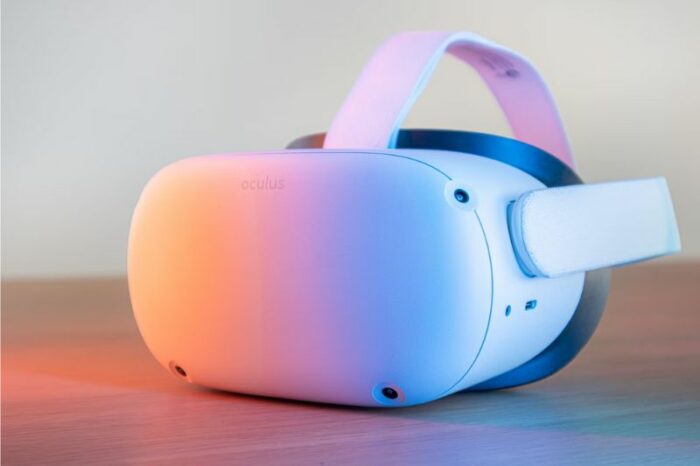In the age of rapid technological advancements, the lines separating different sectors have become increasingly blurred. This convergence has significantly influenced the entertainment industry, leading to a powerful amalgamation of technology and creativity. This blend has redefined the way we consume and engage with entertainment, creating immersive, interactive, and boundary-pushing experiences that continue to enthrall audiences worldwide.
Virtual Reality: The Game Changer
A standout example of the convergence of entertainment and technology is Virtual Reality (VR). This immersive technology has transformed the gaming industry, allowing players to experience virtual worlds that are impressively realistic. Take, for instance, games like ‘The Room VR: A Dark Matter.’ The spatial puzzles and atmospheric audio transport players to another realm, an experience only made possible by VR technology.
In addition to gaming, VR has also revolutionized cinema and music. VR films such as Alejandro G. Iñárritu’s ‘Carne y Arena’ provide an immersive storytelling experience, thrusting viewers into the narrative and allowing them to experience it firsthand. Similarly, music concerts, like Billie Eilish’s virtual reality concert, have extended the reach of live music, allowing fans from all corners of the globe to experience performances as if they were physically present.
Furthermore, VR has opened up new vistas in education and training. For example, medical students can now perform virtual surgeries, gaining practical experience without the risk. In the realm of travel and tourism, VR offers virtual tours, enabling people to visit far-flung places right from their living rooms. Even museums and art galleries have embraced VR to provide immersive, interactive exhibits, bringing art and history to life in a way never before possible.
The New Dawn of Online Games and Platforms
The online gaming industry represents another compelling example of entertainment and technology convergence. Through technological advancements, traditional games have been reinvented for the digital landscape.
For instance, online platforms like PokerStars have brought a classic game to the digital platform, incorporating advanced features for an engaging user experience. A crucial part of this evolution is understanding the various poker terms, from knowing what a blind is—the forced or partial bet put in by players before cards are dealt—to saying “check” when you decide not to bet.
Mobile gaming also showcases this convergence, with titles like ‘Among Us’ and ‘Pokémon Go’ merging real-world environments and social interactions with digital gaming. Moreover, the rise of cloud gaming platforms like Google’s Stadia reflects how technology is reshaping entertainment, allowing gamers to play high-quality games on any device without the need for expensive hardware.
In summary, the convergence of entertainment and technology has opened up a world of opportunities. It has revolutionized the way we engage with media, redefining the concept of entertainment. As technology continues to evolve, we can anticipate a future where the entertainment landscape will be further transformed, offering more immersive, personalized and interactive experiences.
AI’s Emergence in the Entertainment World
Another pivotal intersection of technology and entertainment lies in the realm of artificial intelligence (AI). AI has expanded the boundaries of what’s possible, both behind the scenes and in the user experience. AI-powered algorithms now drive music and online video streaming platforms such as Spotify and Netflix, analyzing preferences to offer personalized recommendations that enhance the user experience.
AI has been instrumental in streamlining processes such as script analysis and casting in film, significantly improving efficiency. For example, the AI system used in the movie ‘Morgan’ edited its own trailer in just 24 hours, a task that would typically take weeks for a human editor.
Furthermore, AI’s capabilities extend to creating art, with AI-produced music and visual art pushing the boundaries of creativity. OpenAI’s MuseNet, a deep learning model, can generate 4-minute musical compositions with 10 different instruments, showcasing the artistic possibilities that AI can bring to entertainment. In the visual arts, AI-driven creations like those from artist Refik Anadol merge data and aesthetics, demonstrating AI’s potential to redefine artistic expression.



